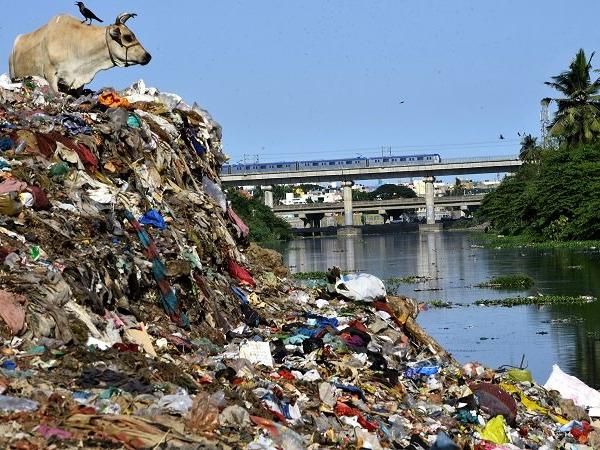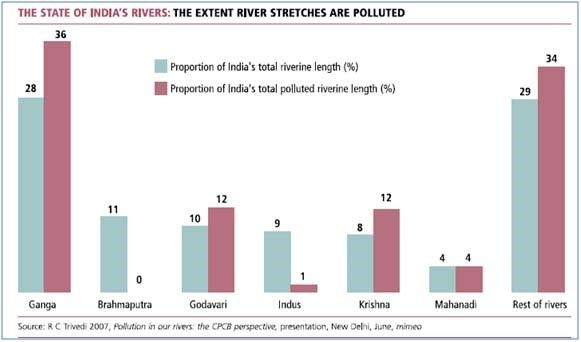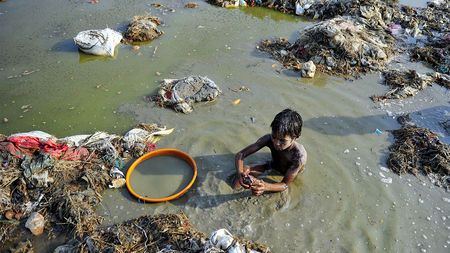Ruining Rivers
May 23, 2019 • 13 views

Rivers in India have great mythological significance, it is believed that rivers have curative powers. But be it Ganga, Yamuna, Brahmaputra, Kaveri or any other river flowing in the soil of our motherland, not a single river is free from pollution. River pollution has been causing serious water-borne diseases and health problems that are affecting the human population as well as animals, marine life and birds in the environment. The report, based on latest data from the ministry of urban development (2013), census 2011 and Central Pollution Control Board, estimates that 75-80% of water pollution by volume is from domestic sewerage, while untreated sewerage flowing into water bodies including rivers have almost doubled in recent years.
India’s booming population and rapidly expanding urban areas have exacted a huge toll on its rivers, which are badly polluted and choked by development. Rivers and streams have borne the brunt of the recent urban explosion in India, a nation whose population has nearly doubled in the last 40 years to 1.35 billion. Unplanned growth has led to the use of water bodies as dumping grounds for sewage and industrial effluent. The cost of this abuse has mounted over the years.

CAUSES-
•Industrial wastes, mixtures of chemicals, heavy metals are all discharged in water and these are difficult to clean up.
•Agricultural wastes, chemicals, feritilisers, pesticides used in agriculture
•Nature’s rain also brings with it pollutants as it falls through polluted air called as acid rain.
•Domestic wastes from households and the sewage that we throw into rivers increases the pollution levels.
•Regular disposal of plastic bags and plastic objects and solid wastes.
•People responding to nature’s call in open spaces near the water bodies.
•Another cause of river pollution is the dumping of human remains, partially burned bodies, dead bodies, which pose serious health threats.
India has seen a string of such judicial rulings involving urban rivers in recent years, as the country comes to grips with the widespread pollution that has fouled waterways and with runaway development that has destroyed or damaged wetlands and floodplains. Across major cities, environmentalists and citizens are engaged in prolonged battles to clean up local rivers through legal petitions intended to force authorities to take actions. Environmentalists blame the failure of past cleanup efforts on a host of problems: The political clout of industries, contractor and weak enforcement by pollution-control agencies, and clashing government departments puts these rivers in a really miserable state.

One of the most effective ways to stand up for our waters is to speak out in support of the Clean Water. The Government is already splurging massive amounts of money for the last so many years in the name of preventing and reducing river pollution.Only meaningful action may bear fruit. It is claimed that we can promote communities involvement in cleaning up of local river and water bodies. Then why it has not been done? We should raise the awareness among the people on the causes and effects of river pollution by organising awareness programmes,. Standing up as a society to preserve the pivotal resource that we have is of utmost importance.
